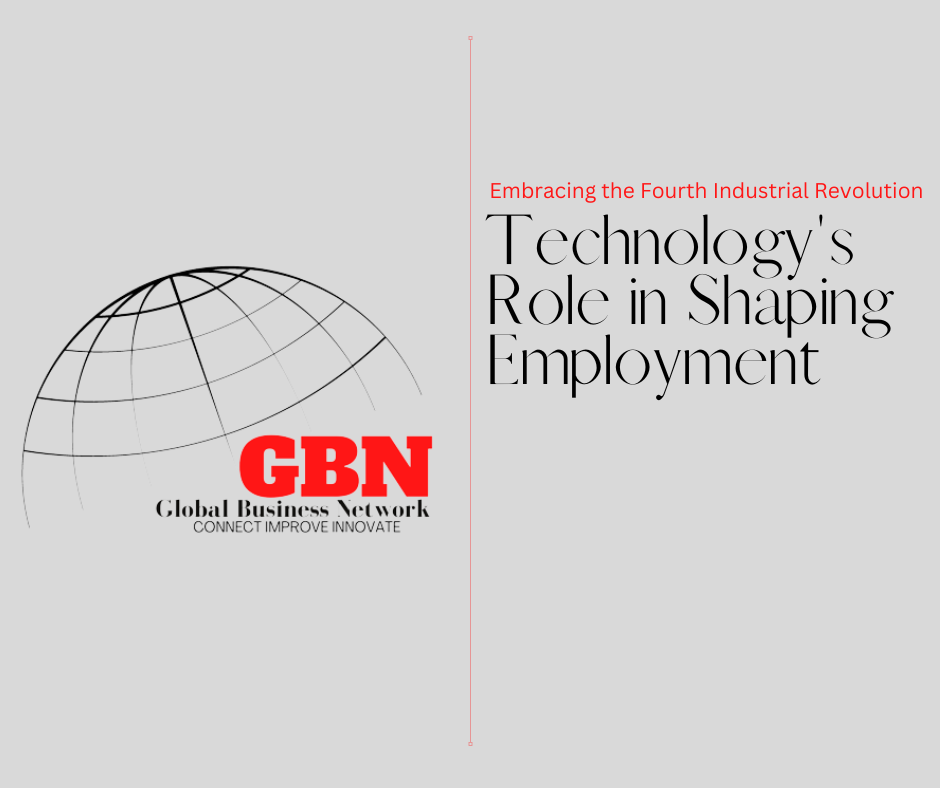In the fast-paced and ever-evolving landscape of the Fourth Industrial Revolution, technology emerges as the paramount force driving the future of employment. As we witness unprecedented technological advancements, the way we work and the skills required are undergoing transformative changes. In this blog, we explore the profound impact of technology on the job market and the imperative for individuals and societies to embrace this revolution to ensure a prosperous and sustainable future.
The Fourth Industrial Revolution: A Technological Odyssey
The Fourth Industrial Revolution, characterized by the convergence of digital, physical, and biological technologies, has ushered in a new era of human progress. Revolutionary innovations such as artificial intelligence, robotics, the Internet of Things (IoT), biotechnology, and renewable energy have become ubiquitous in our lives. As we stand on the cusp of a technological odyssey, it is crucial to recognize that these advancements will significantly shape the future of work.
The Shifting Landscape of Employment
With each technological breakthrough, the employment landscape undergoes a seismic shift. As automation and AI increasingly replace repetitive and mundane tasks, job roles evolve, and new opportunities arise. While some may fear that automation will lead to widespread job loss, history has shown that technological advancements often create new avenues for employment.
Embracing Change: Upskilling and Reskilling
In this era of rapid technological innovation, embracing change is the key to success. Individuals must recognize the necessity of upskilling and reskilling to stay relevant in the job market. Continuous learning and adapting to emerging technologies will empower workers to remain agile and seize the opportunities presented by the Fourth Industrial Revolution.
The Rise of Tech-Driven Industries
As technology becomes the nucleus of the global economy, industries that harness these innovations experience exponential growth. Tech-driven sectors like information technology, cybersecurity, renewable energy, biotechnology, and data analytics become the epicenters of job creation. Investing in the skills demanded by these industries will undoubtedly open doors to rewarding career prospects.
The Importance of a Tech-Savvy Workforce
In a world driven by technology, the demand for a tech-savvy workforce is undeniable. Employers seek individuals who can harness the power of data, analytics, and digital tools to drive innovation and efficiency. Embracing technology will not only enhance employability but also foster a culture of innovation within organizations.
The Need for Digital Inclusivity
While the Fourth Industrial Revolution promises a plethora of opportunities, it is crucial to address the digital divide that exists among communities. Ensuring digital inclusivity by providing access to technology and digital literacy will enable marginalized groups to participate in the evolving job market, fostering a more equitable society.
Collaboration Between Education and Industry
To prepare the workforce of the future, collaboration between education institutions and industries becomes paramount. Education must adapt to the changing needs of the job market, incorporating emerging technologies and skills development. Simultaneously, industries should actively engage with educational institutions to provide insights into the skills required for the job market.
In the era of the Fourth Industrial Revolution, technology is undoubtedly the core driver of employment. As we navigate this transformative landscape, embracing change and technological advancements will be pivotal to unlocking the vast potential of the future job market. By upskilling and reskilling, fostering digital inclusivity, and embracing technology-driven industries, individuals and societies can thrive in the exciting opportunities that this technological odyssey offers. Let us seize this moment to shape a future where technology becomes an enabler of prosperity and sustainable progress for all.




